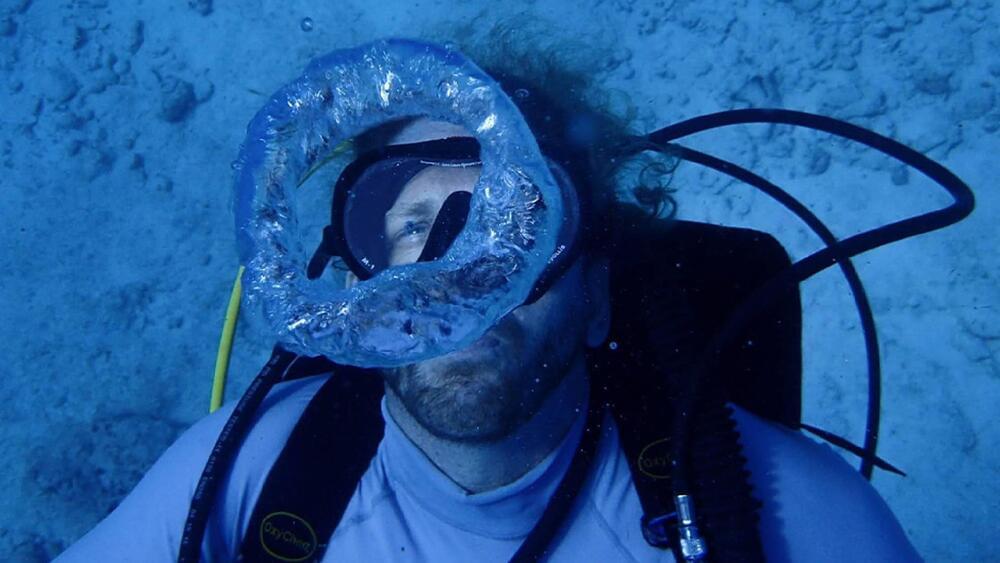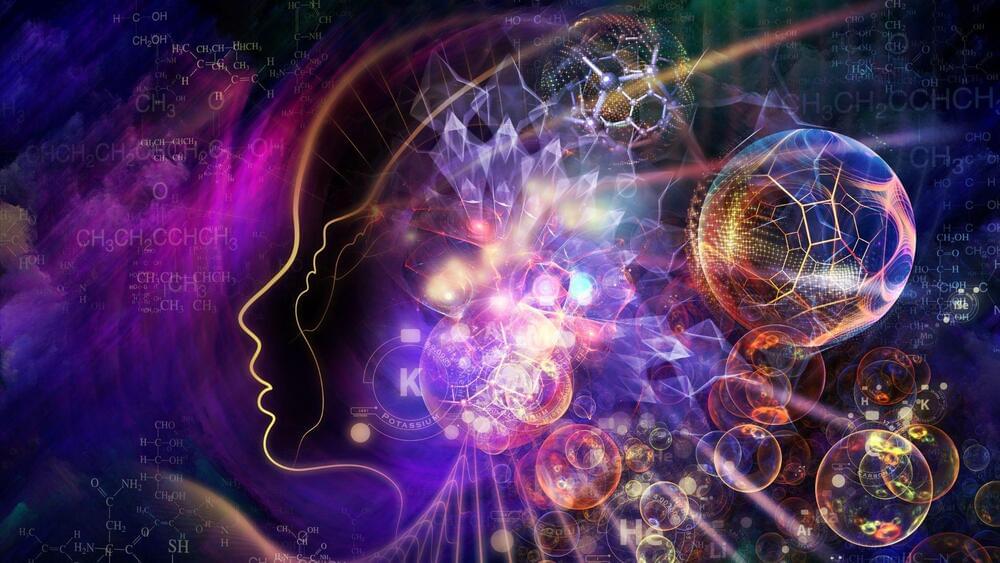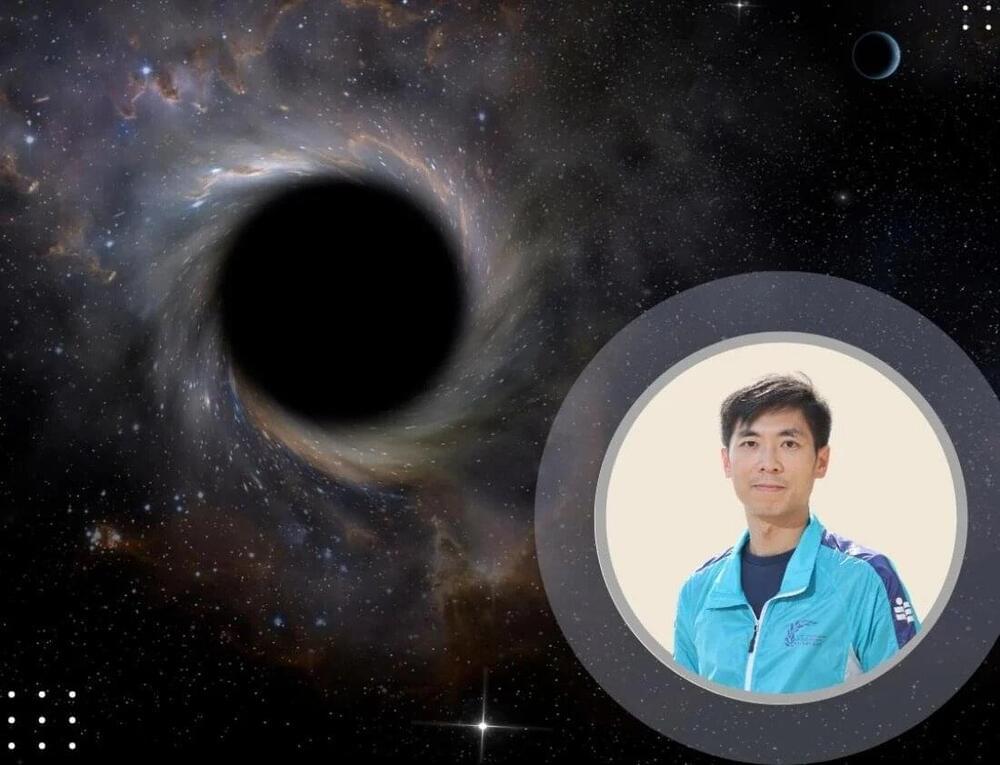Page 2239
Mar 21, 2023
Neutrinos created by CERN Large Hadron Collider detected for the first time
Posted by Gemechu Taye in categories: particle physics, space
Neutrinos created by LHC went undetected earlier, but FASER changed that and can help us learn more about deep space.
Researchers at the European Organization for Nuclear Research, commonly known as CERN, have detected neutrinos created by the Large Hadron Collider (LHC) experiment for the very first time. These were the highest energy neutrinos that were ever produced in a laboratory setup and are similar to those found in particle showers from deep space.
First detected in 1956, neutrinos are subatomic particles that play a key role in the burning of stars. Every time nuclei of atoms either come together (fusion) or break apart (fission) in the universe, neutrinos are released.
Continue reading “Neutrinos created by CERN Large Hadron Collider detected for the first time” »
Mar 21, 2023
Scientists unlock effect of psychedelic drug DMT on the human brain
Posted by Gemechu Taye in categories: biotech/medical, neuroscience
The powerful psychedelic can give you a near-death experience. Here is how it affects your brain on the inside.
Dimethyltryptamine, or DMT, is a powerful psychedelic whose effect on the human brain lasts for only some minutes, but in that short span of time, the user experiences some high-level mental changes.
The researchers examined the brain activity of the participants before, during, and after the DMT test. Here is what they found.
Continue reading “Scientists unlock effect of psychedelic drug DMT on the human brain” »
Mar 21, 2023
Research team finds indirect evidence for existence of dark matter surrounding black holes
Posted by Quinn Sena in categories: computing, cosmology
Dark matter does not emit or reflect light, nor does it interact with electromagnetic forces, making it exceptionally difficult to detect. Nevertheless, a research team from The Education University of Hong Kong (EdUHK) has proven that there is a substantial amount of dark matter surrounding black holes. The study results are published in the journal The Astrophysical Journal Letters.
The team selected two nearby black holes (A0620-00 and XTE J1118+480) as research subjects, with both considered as binary systems. That is, each of the black holes has a companion star orbiting it. Based on the orbits of the companion stars, observations indicate that their rates of orbital decay are approximately one millisecond (1ms) per year, which is about 50 times greater than the theoretical estimation of about 0.02ms annually.
To examine whether dark matter exists around black holes, the EdUHK team applied the “dark matter dynamical friction model”—a theory widely held in academia—to the two chosen binary systems, through computer simulations. The team found that the fast orbital decay of the companion stars precisely matches the data observed.
Mar 21, 2023
Runaway supermassive black hole caught by Hubble
Posted by Quinn Sena in category: cosmology
Speeding through the Universe and leaving a wake of new stars, this runaway supermassive black hole is likely the first among thousands.
Mar 21, 2023
Can synthetic polymers replace the body’s natural proteins?
Posted by Jose Ruben Rodriguez Fuentes in categories: biological, robotics/AI
Using AI, Ting Xu and her colleagues designed polymer mixtures that mimic the natural proteins in biological fluids. The technique could improve the design of biocompatible materials.
Mar 21, 2023
NAD Test #3: Impact of 1000 mg NMN/d?
Posted by Mike Lustgarten in categories: biotech/medical, genetics
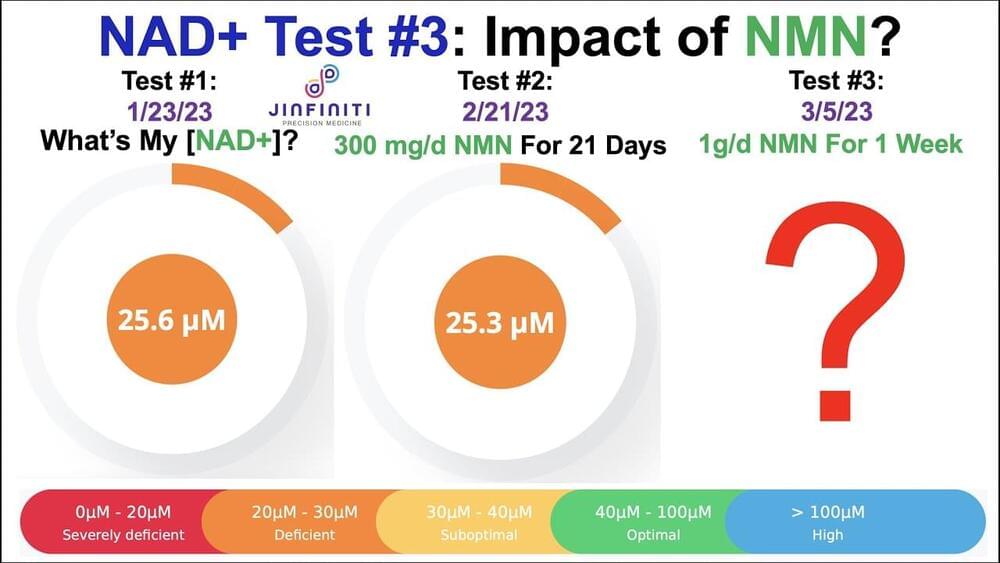
Join us on Patreon! https://www.patreon.com/MichaelLustgartenPhD
Discount Links:
NAD+ Quantification: https://www.jinfiniti.com/intracellular-nad-test/
Use Code: ConquerAging At Checkout.
Mar 21, 2023
The illusion of consciousness | Dan Dennett
Posted by Dan Breeden in category: neuroscience

http://www.ted.com Philosopher Dan Dennett makes a compelling argument that not only don’t we understand our own consciousness, but that half the time our brains are actively fooling us.
TEDTalks is a daily video podcast of the best talks and performances from the TED Conference, where the world’s leading thinkers and doers are invited to give the talk of their lives in 18 minutes. TED stands for Technology, Entertainment, and Design, and TEDTalks cover these topics as well as science, business, politics and the arts. Watch the Top 10 TEDTalks on TED.com, at http://www.ted.com/index.php/talks/top10
Mar 21, 2023
Is Free Will an Illusion? What Can Cognitive Science Tell Us?
Posted by Dan Breeden in categories: law, neuroscience, science
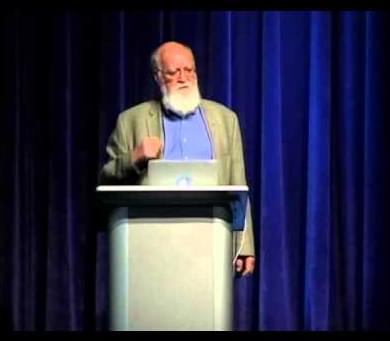
Daniel Dennett.
May 14, 2014
Serious thinkers contend that free will cannot exist in a deterministic universe — one in which events are the singular outcomes of the conditions in which they occur. The alternative view, that free will is prerequisite for personal responsibility and morality, is the basis of our legal and religious institutions. Philosopher Daniel Dennett unravels this conundrum and asks whether we must jettison one of these notions, or whether they can co-exist. He then asks: if free will is an illusion, as many scientists say, should we conclude that we don’t need real free will to be responsible for our actions?
Continue reading “Is Free Will an Illusion? What Can Cognitive Science Tell Us?” »
Mar 21, 2023
What If We Live in a Superdeterministic Universe?
Posted by Dan Breeden in categories: physics, space
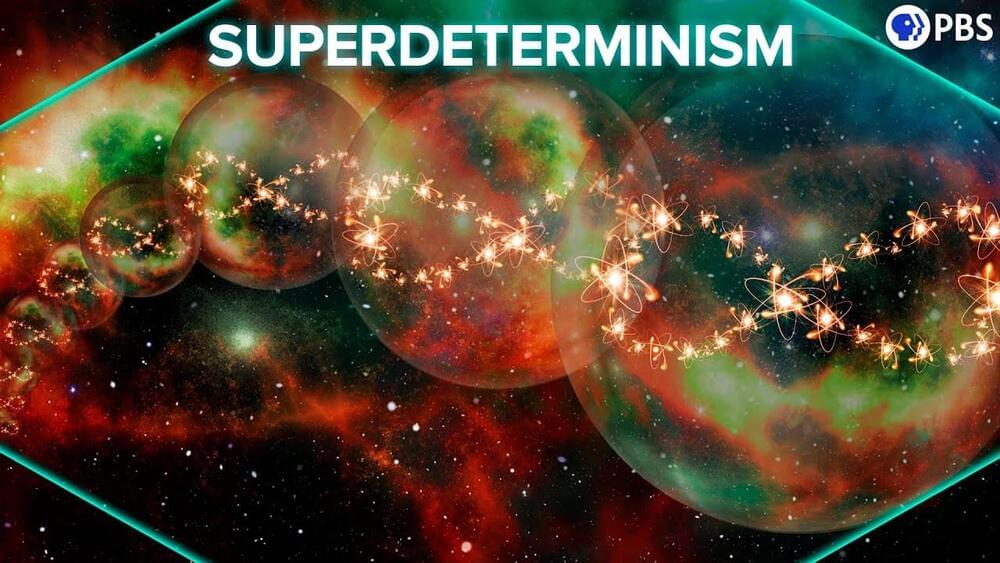
PBS Member Stations rely on viewers like you. To support your local station, go to: http://to.pbs.org/DonateSPACE
Sign Up on Patreon to get access to the Space Time Discord!
https://www.patreon.com/pbsspacetime.
Continue reading “What If We Live in a Superdeterministic Universe?” »
